
FARE, PRENDERE, AVERE: La Magica Trinità dei Verbi Italiani!
FARE, PRENDERE, AVERE: The Magical Trinity of Italian Verbs!
Come pensare come un italiano
How to Think Like an Italian
Il modo migliore per padroneggiare gli usi di FARE, PRENDERE e AVERE è iniziare a pensare come un italiano. Questi verbi comuni nascondono un mondo di espressioni idiomatiche e significati culturali.
The best way to master the uses of FARE, PRENDERE, and AVERE is to start thinking like an Italian. These common verbs hide a world of idiomatic expressions and cultural meanings.
Per la cronaca, questo post è dedicato alla mia studentessa Tonya, che mi ha chiesto di creare un elenco di espressioni utili con questi verbi prima del suo viaggio in Italia. È pronta a immergersi nella lingua e a mettere in pratica il suo italiano!
For the record, this post is dedicated to my student Tonya, who asked me to create a list of useful expressions with these verbs before her trip to Italy. She’s ready to dive into the language and practice her Italian!
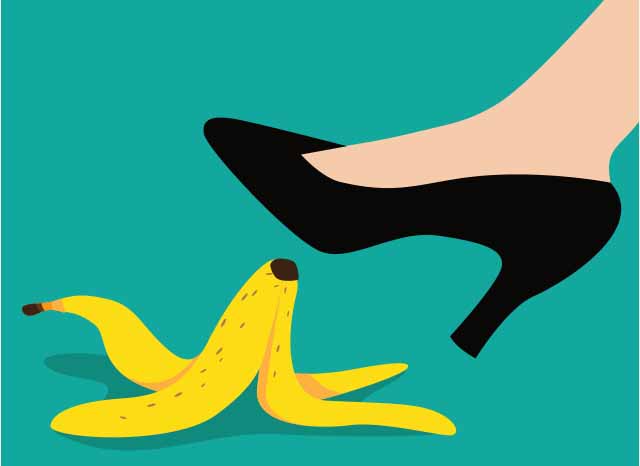
Tradurre alla lettera? Attenzione alla buccia di banana!
Literal Translation? Beware of the Banana Peel!
Le traduzioni letterali sono come una buccia di banana sul percorso verso la padronanza della lingua! Tradurre parola per parola dalla tua lingua madre è come cercare di far entrare un piolo quadrato in un foro rotondo. Non funziona!
Literal translations are like a banana peel on the path to language mastery! Translating word for word from your native language is like trying to fit a square peg into a round hole. It doesn’t work!
FARE, PRENDERE, AVERE: Cosa significano?
FARE, PRENDERE, AVERE: What Do They Mean?
FARE significa “fare” o “creare.”
FARE means “to do” or “to make.”
PRENDERE significa “prendere” o “ottenere.”
PRENDERE means “to take” or “to get.”
AVERE significa “avere” o “possedere.”
AVERE means “to have” or “to own.”
Semplice, vero? Ma attenzione! / Simple, right? But watch out!
These verbs are often used in ways that might surprise English speakers.
Faccio colazione. —–> I make breakfast
I’m having breakfast.
Prendo la bistecca alla fiorentina. —–> I take the steak
I’ll have the Florentine steak.
Ho venticinque anni. —–> I have 25 years
I am twenty-five years old.
Here is a list of common expressions with
FARE, PRENDERE, and AVERE to guide you.

FARE ——-> “to make” or “to do”
Fare l’albero = decorate Christmas tree
Fare i compiti = do homework
Fare la fila/coda = to wait in line
Fare la spesa = to do the shopping
Fare un domanda = to ask a question
Fare una fotografia = to take a photo
Fare il biglietto = to buy a ticket
Fare colazione = to have breakfast
Fare un viaggio = to go on a trip
Fare la valigia = to pack a suitcase
Fare di tutto = to do everything possible
Fare fingere = to pretend
Fare festa = to have fun, party it up
Fare soldi = to get rich
Fare una pausa = to take a break
Fare una passeggiata = to take a walk
Fare vedere = to point something out
Fare un capello in quattro = split hairs
Fare del proprio meglio = do one’s best
Fare alla romana = to split the check
Fare il pieno = to fill up the gas tank
Fare passare = to let through
Fare male = to be painful, to ache
Fare castelli in aria = to daydream
Fare pace = to make peace
Fare soldi = to become rich
Fa bel tempo = To be nice outside
Fa brutto tempo = To have bad weather
When FARE is reflexive: FARSI
The Italian verb “farsi” means: to become, to grow into, fix, or prepare for oneself.
Farsi la barba = to shave
Farsi degli amici = to make friends
Farsi coraggio = to take heart
Farsi male = to hurt yourself

PRENDERE ——-> “to take,” “to bring,” “to pick up,” “to get,” “to buy”
Pendere una decisione = to decide
Prendere un caffè = order a coffee
Prendere un vestito = to buy a dress
Prendere la macchina = to go by car
Prendere un’appuntamento = make a date or an appointment
Prendere per mano = take by hand
Prendere sole = to sun bath
Prendere il vino = grab the wine
Prendere qualcuno = pick someone up
Prendere appunti = to take notes
Prendere il treno = to catch the train
PRENDERE can be used to describe being overcome with emotion
Sono stata presa da gioia quando sei venuto
alla festa e mi hai chiesto di ballare.
I was overcome with joy when you came to the party and asked me to dance.
Sono preso da lui. (Sono innamorato di lui.)
I am taken with him.
When PRENDERE is reflexive: PRENDERSI
The verb prendersi is used to express actions or feelings
directed toward oneself or responsibilities one assumes
Prendersi un raffreddore = Catch a cold
Prendersi cura di = to take care of
Prendersela (pronominal verb — “Prendere + se + la”) =
when you are angered or offended, or blame someone
Me la sono presa quando tu non mi ha telefonato ieri sera.
I got upset when you didn’t call me last night.
Non prendertela, stava solo scherzando!
Don’t get upset, he was just joking!

AVERE ——-> “to have”
Avere fretta = to be in a hurry
Avere voglia di = to want, to feel like
Avere sonno = to be sleepy
Avere paura di = to be scared of
Avere bisogno di = to need
Avere caldo = to be hot
Avere anni = to express your age
Avere freddo = to be cold
Avere intenzione di = to intend to
Avere vergogna = to feel ashamed
Avere ragione = to be right
Avere torta = to be wrong
Avere senso = to make sense
Avere la pelle d’oca = goosebumps
The AVERE verb in Italian means “to have.” Easy enough! But in Italian, many idiomatic uses of the verb AVERE don’t correspond directly to the English language. Whereas an English speaker would use the verb “to be” (the essere verb in Italian), the Italian speaker would use the verb “AVERE.”
Avere fame = to be hungry
An English speaker would say, “I am hungry.”
But an Italian speaker expresses this concept using AVERE verb ——> “I have hunger.”
Avere sete = to be thirsty
An English speaker would say, “Are you thirsty.”
An Italian speaker expresses this concept using the AVERE verb ——> “Do you have thirst.”
Idiomatic uses of AVERE
Avere le braccine corte (literally: to have short arms) = to be cheap, stingy (because your arms are too short to reach into your pocket for your wallet.
Non avere peli sulla lingua (literally: not to have hair on your tongue) = not to mince words)
Avere molto sale in zucca (literally: to have lots of salt in your pumpkin) = to be smart, have common sense.
Avere gli occhi più grandi dello stomaco (literally: to have eyes bigger than your stomach) = to take too much to eat and not be able to finish it.
Avere un cervello di gallina (literally: to have a hen’s brain) = to not be very intelligent.
Avere il dente avvelenato (literally: to have a poisonous tooth) = to be full of resentment, hold a grudge
Avere culo (literally: to have ass) = to be lucky.
Avere un piede nella fossa (literally: to have one foot in the grave) = on the verge of death.
Avere la botte piena e la moglie ubriaca (literally: to have a full barrel of wine and a drunken wife) = to have your cake and eat it too.
Avere le mani in pasta (literally: to have your hands in the dough) = to be involved in something, in the know.
Avere le mani d’oro (literally: to have golden hands) = to be gifted in doing something.
Avere le fette di salame sugli occhi: (literally: to have your eyes covered with slices of salami) = not seeing the obvious.
Avere un chiodo fisso in testa: (literally: to have a nail driven into your head) = to be obsessed with somethin
Avere le mani bucate: (literally: to have holes in your hands = to be a big spender.
Avere le mani legate: (literally: to have your hands tied) = forced to act a certain way.
Does it MAKE sense? / Ha senso????”
Remember, in Italian, AVERE SENSO means TO MAKE SENSE
BUT English speakers might be tempted
to express TO MAKE SENSE using the FARE verb
ATTENZIONE!!!!
FARE SENSO actually means something is gross or revolting!
Be careful not to confuse the two!

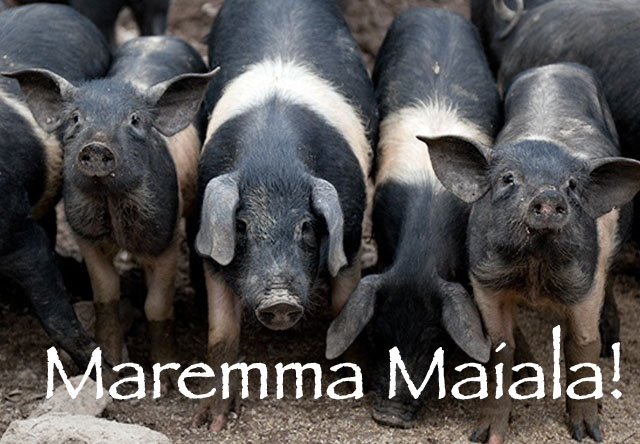
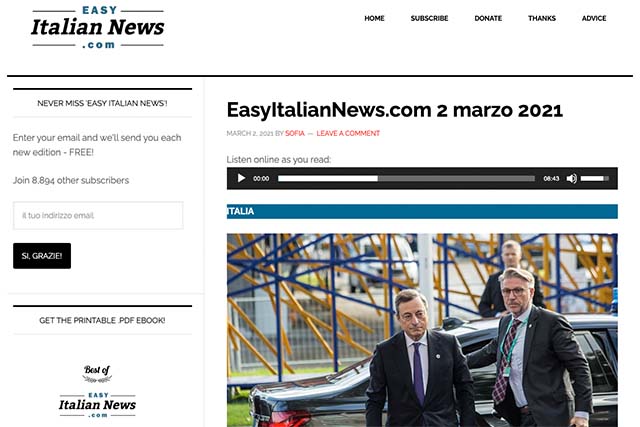


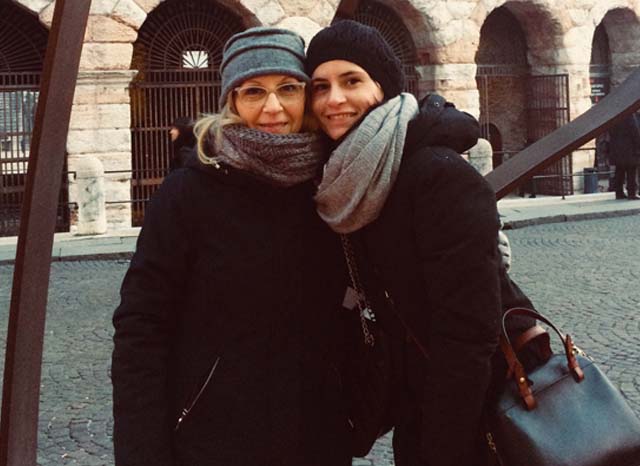
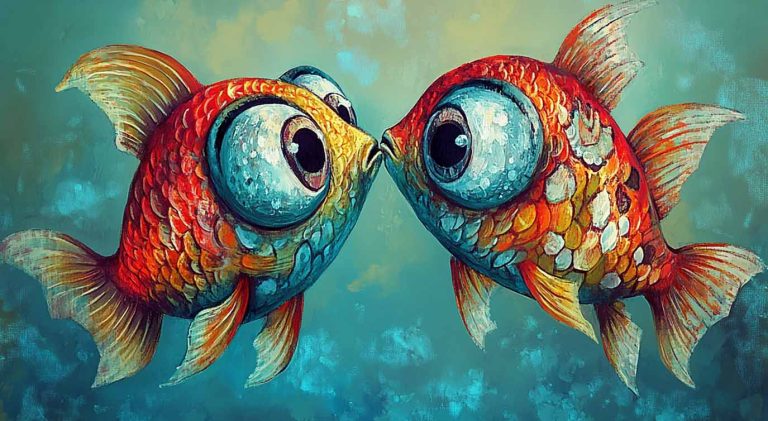





THIS IS A fantastic post!